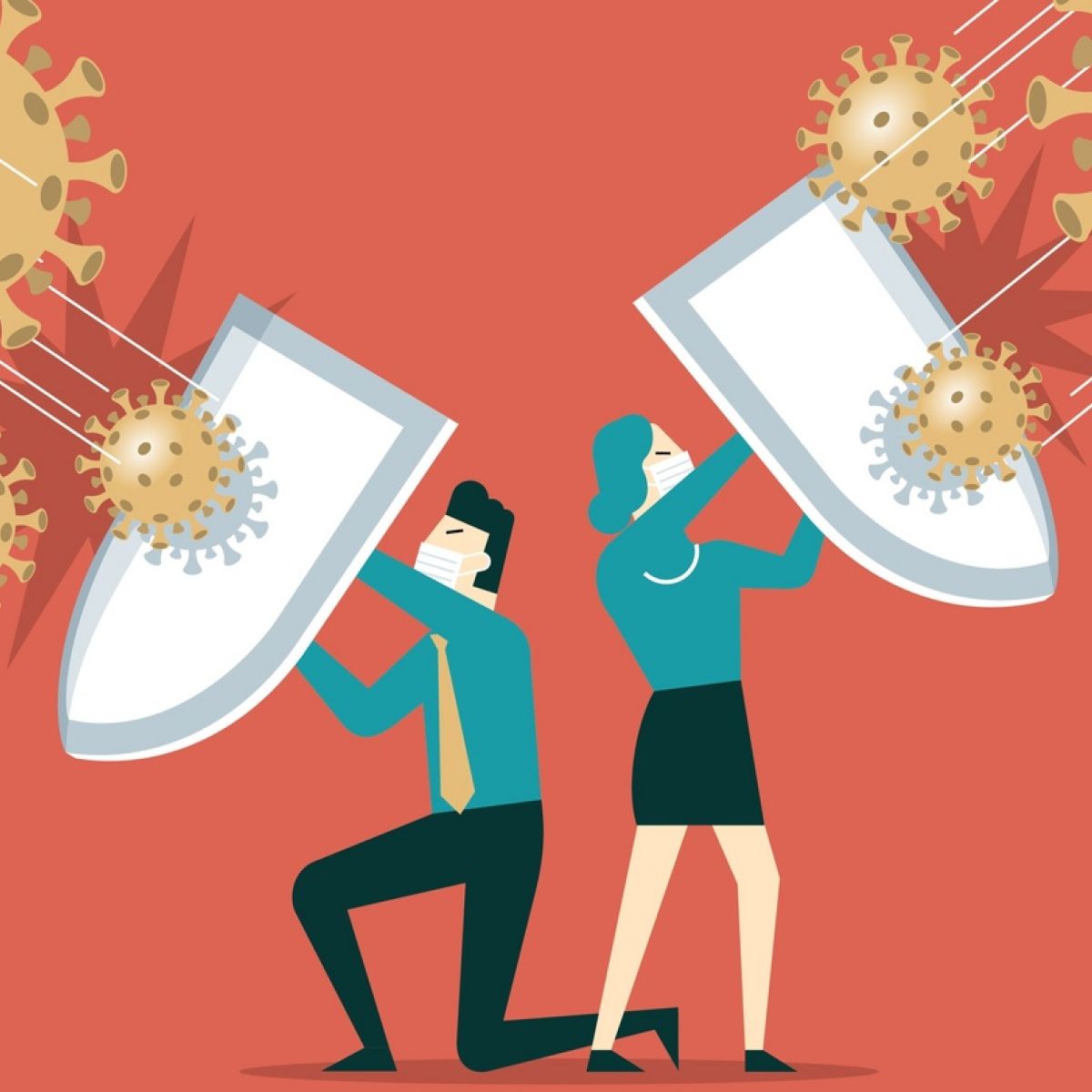BREAKING!! COVID-19 Immunity: New Study That Is Yet To Be Peer-Reviewed Says Humans May Never Develop Immunity Against COVID-19
Source: COVID-19 Immunity Jun 18, 2020 5 years, 7 months, 2 days, 2 hours, 47 minutes ago
COVID-19 Immunity: According researchers from Wuhan University-China and University in Texas-Gaslvestom-America, humans may never develop immunity against COVID-19.

Chinese and American scientists ran antibody tests on samples from hospital workers who were exposed to infected patients at early stage of outbreak and found that only 4 per cent of 23,000 had antibodies but they estimated at least 25 per cent could have contracted the disease.
Their research conclusion was based on a study looking at whether hospital workers in Wuhan who were directly exposed to infected patients at the early stage of the outbreak had developed antibodies. The deadly new disease was first detected in the Chinese city late last year.
According to the researchers at least a quarter of the more than 23,000 samples tested could have been infected with the virus at some stage, but only 4 per cent had developed antibodies as of April.
The researchers concluded that “
Individuals are unlikely to produce long-lasting protective antibodies against this virus.”
The research that is yet to be peer reviewed but is attracting the attention of many scientists was published only a few days ago on a preprint server.
https://www.medrxiv.org/content/10.1101/2020.06.13.20130252v1.full.pdf+html
A lot of efforts to fight the pandemic are being done on the assumption that individuals who have had Covid-19 will produce antibodies that will protect them from reinfection. Those efforts include countries considering issuing “immune certificates”, the over 100 potential vaccines in development, and recovered patients being encouraged to give blood for experimental drugs and therapies.
The research in Wuhan suggested not everyone infected was producing antibodies, or producing long-lasting ones. Antibodies are the molecules generated by the immune system to bind with the virus spike protein and stop it from infecting cells. Some, like immunoglobulin G, or IgG, can remain in the system for a long time; it has been found in severe acute respiratory (Sars) patients 12 years after they were infected.
The study led by Professor Dr Wang Xinhuan from Wuhan University’s Zhongnan Hospital and scientists from the University of Texas in Galveston, looked at samples from health care workers and general hospital staff in the city.
The researchers found that only less than 4 per cent of the health care workers and 4.6 per cent of general hospital staff had the IgG antibody.
However past research found that 2.5 per cent of hospital employees in Wuhan had contracted Covid-19 during the outbreak, but it has been estimated that the real proportion of infections among this group could be as high as 25 per cent.
Certain individuals have mild or no symptoms when they have the coronavirus that causes Covid-19, and may not even know they have it. And with human-to-human transmission not confirmed until late January, many doctors and nurses in Wuhan were not wearing extra protective gear to treat patients.
According to Dr Wang said, &
ldquo;They just got infected with Sars-CoV-2 and fought off the virus with their own immune systems.”
Interestingly patients with confirmed infections, where the symptoms were usually more obvious, tended to produce more antibodies, according to the researchers. An earlier study found all confirmed cases they looked at had developed the IgG antibody two weeks after the disease onset.
Dr Wang’s team also suggested that more than 10 per cent of the people in their study may have lost antibody protection within a month or so.
Dr Wang warned, “
Our findings have important implications for herd immunity, antibody-based therapeutics, public health strategies, and vaccine development.”
From the study finding, the researchers said
antibody tests may not be enough to tell whether someone had been infected, and the presence of antibodies like IgG may not necessarily provide immunity later.
Dr Wang stressed, “The idea of an immune certificate for recovered Covid-19 patients is invalid.”
Significantly, a separate study by a team at Tsinghua University in Beijing suggested that the more antibodies produced by Covid-19 patients, the worse the outcome, the patient with the strongest antibody response in their study died.
The researchers pointed to a phenomenon known as
antibody-dependent enhancement, in which viruses “hitch a ride” on an antibody to infect cells they could not enter otherwise.
Dr Wang warned that was “a big concern to be closely monitored”.
However Dr Wu Yingsong, director of antibody engineering research at the Southern Medical University in Guangzhou, said the Wuhan study should be treated with caution. He noted that most antibody tests only checked for a couple of antibodies to save time and cost and that could mean false results.
There is a lot of unknowns about the SARS-CoV-2 and for the last 5 months, scientists and researchers have been working on assumptions, or comparing it to the previous SARS coronavirus etc when in reality, the SARS-CoV-2 coronavirus is extremely unique and anomalous in many ways plus its evolving at a very rapid phase.
For more about
COVID-19 immunity, keep on logging to Thailand Medical News.
HELP! Please help support this website by kindly making a donation to sustain this website and also all in all our initiatives to propel further research: https://www.thailandmedical.news/p/sponsorship
